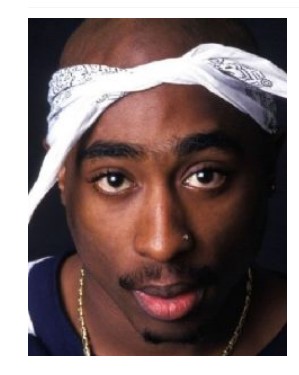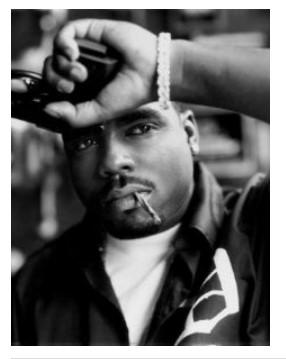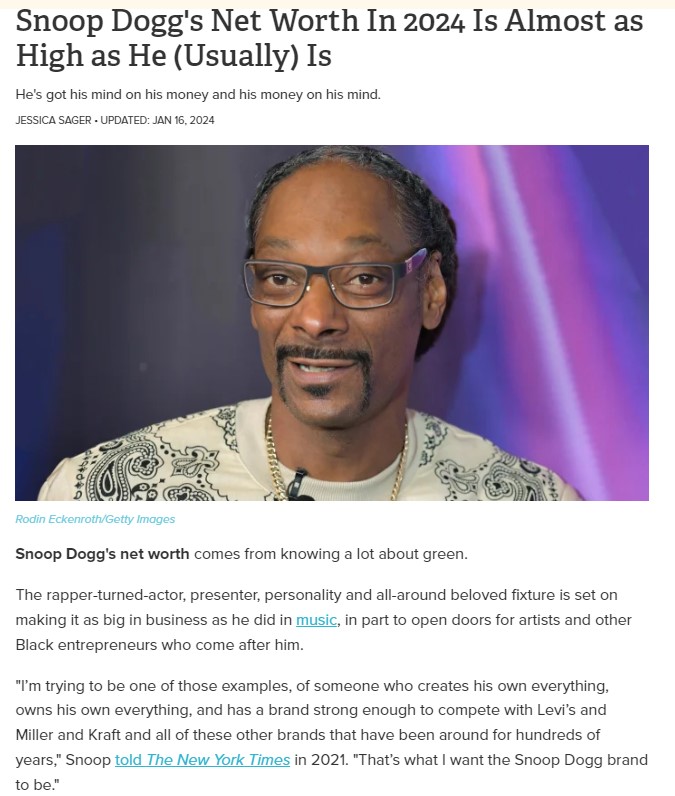Below is a compilation of past and current artists affiliated with Death Row Records. Should you seek the complete discographies of any of these bands under the Death Row Records label, simply click on their names to access them on Ranker. Spanning across various musical genres like pop, rap, rock, and electronic, the roster boasts a diverse array of talents.
Highlighted prominently among the artists signed by Death Row Records are iconic figures such as Snoop Dogg and Tupac Shakur.
Curious about the top bands associated with Death Row Records? Interested in discovering the full roster of artists under the label’s banner? Delve into the details below.
Tupac Shakur
Tupac Shakur, the renowned rapper, became associated with Death Row Records through a significant three-album deal, facilitated by Suge Knight’s intervention, who posted a $1.4 million bond for Tupac’s release from prison. Additionally, Suge provided financial support to Tupac’s mother, offering $15,000 for house payments during the rapper’s incarceration. As part of this agreement, Death Row Records released “All Eyez on Me,” Tupac’s monumental work and hip-hop’s second double album, following Master P’s “Down South Hustlers – Bouncin & Swingin.” This release marked the completion of two out of the three albums Tupac had committed to with Death Row.
“All Eyez on Me” hit the shelves in February 1996, swiftly earning recognition. By April of the same year, it achieved a remarkable feat, being certified 5x platinum by the RIAA. Its enduring popularity was further underscored in 2014 when it attained diamond certification, signifying sales of over 10 million records. The album’s accolades included the R&B/Soul or Rap Album of the Year at the 1997 Soul Train Music Awards and the distinction of Favorite Rap/Hip-Hop Artist at the American Music Awards that same year.
Tragically, Tupac’s life was cut short in 1996 by a fatal shooting in Las Vegas, an incident believed to be both retaliatory and premeditated. Despite this, he had already completed work on his third album during his tenure at Death Row. Released under the title “The Don Killuminati: The 7 Day Theory,” often referred to simply as “Makaveli,” it stands as Tupac’s inaugural posthumous album and the final project released with his direct artistic input. The album’s impact was profound, evidenced by its 4x platinum certification in 1999, following its debut in August 1996.
Following Tupac’s passing, his legacy endured through the release of five additional solo posthumous albums from his estate, alongside a collaborative album with his rap group, Outlawz. Throughout his discography, Tupac’s music delved into themes of social injustice prevalent in African American communities, leaving an indelible mark on the genre. His influence transcended his time, inspiring subsequent hip-hop luminaries such as Nas and T.I. With an astonishing 75 million records sold worldwide, Tupac remains an icon of the genre, his impact reverberating through generations.

Dr. Dre
Dr. Dre, born Andre Young, is widely acclaimed as one of the most influential figures in hip-hop production. Often overshadowed by his prowess behind the boards is his own skill as a rapper. Departing from Ruthless Records alongside The D.O.C., Dr. Dre joined forces with Suge Knight to found Death Row Records. It was here that he unleashed his groundbreaking album, “The Chronic,” upon the world in 1992. This seminal work birthed timeless tracks like “Fuck Wit Dre Day,” “Let Me Ride,” and “Nuthin’ but a ‘G’ Thang.”
“The Chronic” soared to number three on the prestigious Billboard album chart, securing its status as a cultural force. Furthermore, it garnered a triple-platinum certification from the RIAA, cementing Dr. Dre’s status as a trailblazer in the genre. Shortly before the tragic demise of Tupac Shakur, Dr. Dre parted ways with Death Row Records to establish his own imprint, Aftermath Records. Since then, all of his solo endeavors have found their home under the Aftermath banner.
Throughout his illustrious career, Dr. Dre has delivered three solo albums, in addition to two soundtrack albums and six collaborative efforts. Among these collaborations are two with World Class Wreckin’ Cru and four with the pioneering group N.W.A.

Daz Dillinger
Daz Dillinger, also known simply as Daz, emerges as a notable figure in the realm of rap and production. His journey commenced at the tender age of 19 when he inked a deal with the renowned Death Row Records. Within this musical landscape, he forms one half of the dynamic duo known as The Dogg Pound, alongside his label compatriot Kurupt. Daz’s creative prowess made significant waves, contributing to iconic albums like The Chronic and making memorable appearances in Doggystyle. The culmination of their collaborative efforts materialized in the form of their debut offering, Dog Food, which not only garnered critical acclaim but also achieved the coveted platinum status.
The tumultuous events surrounding Tupac’s tragic demise precipitated a mass exodus of talent from Death Row. Despite parting ways with the label, Daz’s solo endeavors were far from dormant. It was years later when Death Row finally released his debut solo album, “Retaliation, Revenge and Get Back”. This album soared to impressive heights, clinching the No. 2 spot on the Billboard Top R&B/Hip-Hop Albums chart and securing the eighth position on the 200 Albums chart. Undeterred by the shifting tides of the industry, Dillinger persisted and flourished in his dual roles as rapper and producer.
In a testament to his enduring relevance, Daz unveiled the A.T.L.A. project alongside Big Gripp in 2020, further solidifying his stature in the hip-hop landscape. Notably, his collaborative efforts with Kurupt on the track “What Would You Do” earned the duo a Grammy nomination for Best Rap Performance by a Duo or Group, a testament to their enduring impact on the genre.

Kurupt
Kurupt, whose real name is Ricardo Emmanuel Brown, embarked on his third tenure at Death Row Records following its acquisition by his long-standing ally, Snoop Dogg, in 2022. At the youthful age of 19, Kurupt initially became affiliated with the label in 1992. However, like many others, he parted ways with Death Row in the aftermath of Tupac’s tragic demise. Notably, during his initial tenure, he contributed to the release of the Dogg Food album as a member of the rap duo, The Dogg Pound, alongside Daz Dillinger. This marked his initial association with Death Row Records. In 2002, Kurupt made a return to the label, assuming the role of vice president for a brief period. During this time, he endeavored to release his long-awaited Against The Grain album before once again departing from the label’s roster in 2005. Fast forward to 2022, Kurupt’s reunion with Death Row Records was part of Snoop’s strategic vision to rejuvenate the label’s legacy.

The D.O.C.
The D.O.C., originally known as Tracy Lynn Curry, earned the moniker “master of the pen” during the ascendancy of gangsta rap in the 1990s. Initially affiliated with Ruthless Records, he later made a pivotal move to the nascent Death Row Records alongside Dr. Dre. Notably, The D.O.C. played a significant role in co-writing seminal albums such as Eazy E’s “Eazy-Duz-It” and Dr. Dre’s “The Chronic.”
His debut solo album, “No One Can Do It Better,” emerged in 1989, garnering both critical acclaim and commercial success. Boasting two chart-topping hits, the album attained platinum status by 1994, solidifying The D.O.C.’s position as a formidable force in the rap scene.
However, shortly after the release of his debut, tragedy struck in the form of a severe car accident. The artist openly admitted to being under the influence of alcohol and marijuana at the time. The crash resulted in extensive facial injuries, necessitating reconstructive surgery and permanently altering his vocal cords.
Undeterred by adversity, The D.O.C. remained active in the music industry, albeit primarily as a behind-the-scenes contributor at Death Row Records. Despite his contributions to Dr. Dre’s and Snoop Dogg’s albums, a dispute over compensation led to his departure from Death Row. In 1997, he took the reins of his artistic destiny by founding Silverback Records, marking a new chapter in his career.

The Lady of Rage
Robin Yvette Allen, famously known as The Lady of Rage, rose to prominence through her notable contributions to Snoop Dogg’s “Doggystyle” and Dr. Dre’s “The Chronic” albums. It was Dr. Dre who recognized her talent, having stumbled upon her impressive vocals featured on the L.A. Posse’s album “They Come in All Colors,” which debuted in 1991. Despite facing delays, Allen finally unveiled her solo debut, “Necessary Roughness,” in 1997. This album marked her sole release under that particular label. “Necessary Roughness” made significant waves, peaking at No. 7 on the Billboard R&B Album chart and reaching No. 32 on the Billboard 200 Albums chart. In 2007, she inked a deal with Boss Lady Entertainment, marking a new chapter in her career.
Sam Sneed
Sam Sneed, an artist who made his mark in the music industry, secured a deal with Death Row Records back in 1993. His debut single, “U Better Recognize,” featuring the collaboration of Dr. Dre, showcased his talent and potential. Not just a performer, Sam also delved into production, co-creating notable tracks like “Keep Their Heads Ringin” and “Natural Born Killaz” alongside Dr. Dre. However, in 1999, his career faced a significant setback with the diagnosis of a brain tumor. Despite this challenge, Sam Sneed displayed resilience and determination, eventually overcoming his health issues. In his journey post-recovery, he continued to leave his mark in the music scene, contributing his production skills to tracks by prominent artists such as G-Unit, Jay-Z, and Scarface.
Snoop Dogg
Snoop’s journey with Death Row Records has been quite a rollercoaster ride, from his groundbreaking debut with “DoggyStyle” to his departure and subsequent criticisms of the label’s management. It’s interesting to see him now as the owner, bringing a new chapter to the label’s storied history. His entrepreneurial spirit and deep connection to the label’s legacy could potentially breathe new life into it. It’ll be fascinating to see what direction he takes Death Row Records in under his leadership.
Death Row Records Net Worth
In February 2022, Snoop Dogg finalized the acquisition of Death Row Records through a deal with MNRK Music Group, a private equity firm associated with Blackstone. Valued at approximately $50 million, this acquisition marked a significant milestone for the rap icon. Reflecting on the purchase, Snoop expressed his satisfaction, stating, “It feels gratifying to assume ownership of the label where my journey in the music industry began, as one of its founding members. This moment holds profound significance for me.”
However, while the deal encompassed much of Death Row’s catalog, it notably excluded the rights to music by Dr. Dre and Tupac Shakur. Billboard reports that these exclusions impacted the label’s revenue stream. With the absence of Dr. Dre and Tupac’s albums, Death Row’s annual revenue is estimated to have decreased from around $15 million to approximately $6 million. Nevertheless, Snoop Dogg’s own albums remain a substantial contributor to the label’s revenue, accounting for a significant portion of its earnings, estimated to be between one-third to half of the total.

Who is the Mexican artist on Death Row Records?
Mariachi vocalist Julian Torres captured the attention of Death Row Records producer Fredwreck in 2020 when he showcased his talents outside the former Staples Center during a tribute honoring Kobe Bryant. Fast forward three years, and Torres has etched his name in history as the inaugural mariachi artist signed to Snoop Dogg’s esteemed Death Row Records.
Reflecting on his serendipitous journey, Torres recounted the moment his path intersected with destiny. “I stumbled upon the video of my tribute performance, and before I knew it, it had taken the internet by storm. After reposting it, fate intervened as Fredwreck stumbled upon my rendition and promptly reached out via Instagram,” shared Torres, who also dedicates his time as a teacher’s aide for children with disabilities at an LAUSD school.
Hailing from Hawthorne, Torres attributed his deep-rooted love for mariachi to his upbringing, heavily influenced by his father’s musical preferences. “In our household, mariachi music was the soundtrack of our lives: from the heartfelt melodies of Jose Alfredo Jimenez to the iconic tunes of Jorge Negrete and Pedro Infante, my father’s passion for the genre was infectious,” reminisced Torres.
Snoop Dogg, renowned for his affinity for Mexican music, assumes the role of executive producer for Julian Torres and Mariachi Cenzontle, marking Death Row Records’ inaugural venture into the vibrant Latin music landscape. The latest offering, “La Fiesta de Mi Pueblo,” as described in a press release by Death Row Records, pledges to captivate aficionados of traditional Mexican music with its innovative approach.
Expressing his admiration for mariachi, Snoop Dogg revealed, “Mariachi has always held a special place in my heart. Whether I’m cruising in my car or tidying up my home, the soulful tunes of Vicente Fernandez accompany me. While I appreciate various genres of Spanish music, there’s an undeniable allure to mariachi’s timeless essence. You know, I’m all about the classics,” he declared in a statement heralding the album’s release.
Did Suge Knight own Death Row Records?
Marion Hugh “Suge” Knight Jr., born on April 19, 1965, stands as an emblematic figure in American music history, albeit for both his groundbreaking contributions and his troubled past. Co-founding and once helming the helm of Death Row Records, Knight played a pivotal role in propelling gangsta rap into mainstream success during the 1990s, spearheading the label’s triumphs with iconic albums like Dr. Dre’s “The Chronic” in 1992 and Snoop Dogg’s “Doggystyle” in 1993.
However, Knight’s narrative takes a darker turn with his involvement in a fatal hit-and-run incident in 2015, resulting in a 28-year prison sentence. Prior to his ventures in the music industry, Knight’s journey unfolded on the football field, where he showcased his skills as a defensive end for UNLV and even briefly donned the jersey of the Los Angeles Rams during the NFL players strike of 1987.
In the midst of Death Row Records’ ascent, Knight cemented his notoriety by striking a deal with Tupac Shakur, bailing him out of prison in 1995 and subsequently signing him to the label. Their collaboration yielded Shakur’s monumental album “All Eyez on Me” in 1996. Tragically, their partnership was cut short when Shakur was fatally shot in a drive-by shooting following a Mike Tyson boxing match in Las Vegas.
The exodus of key artists like Dr. Dre and Snoop Dogg marked the beginning of Death Row Records’ decline, compounded by mounting allegations of Knight’s involvement in criminal activities, including acts of intimidation and violence. His legal woes mounted over the years, culminating in a plea of no contest to voluntary manslaughter for the 2015 hit-and-run incident.
Knight’s conviction triggered California’s stringent three-strikes law, resulting in a 28-year sentence, with eligibility for parole slated for October 2034, at the age of 69. His story serves as a cautionary tale of the intertwining paths of success and downfall in the tumultuous world of the music industry.
